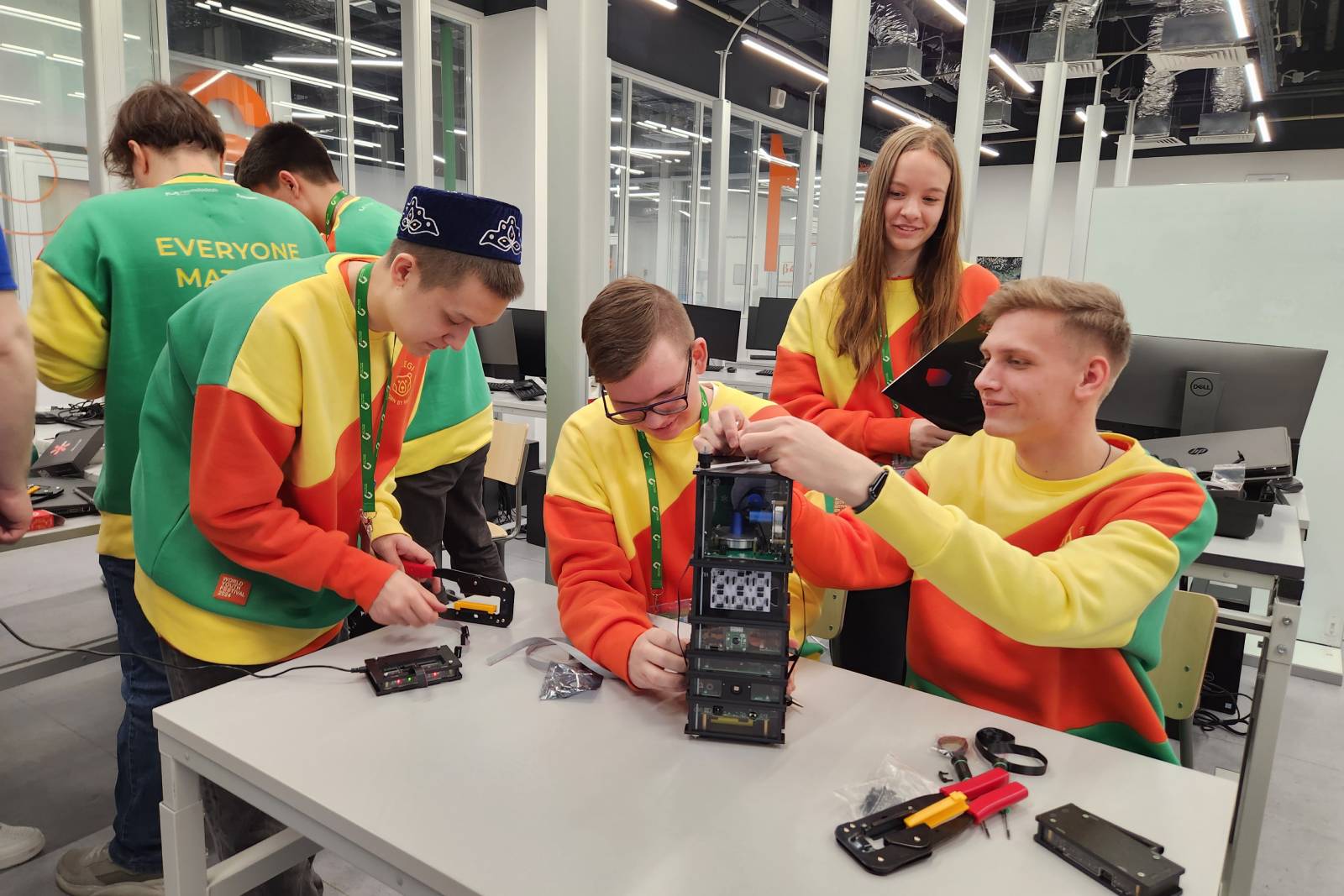WYF 2024 Participants Together with HSE Experts Assemble a Satellite Model Using Blockchain Technology
.jpg)
Participants at the World Youth Festival, together with HSE University specialists, have developed a working model of a small spacecraft using blockchain technology. Future engineers aged 14-18 from Algeria, Serbia, and Kyrgyzstan, as well as different regions of Russia took part in this project.
As part of the ‘Together into the Future’ festival programme, the organisers launched Yuri Gagarin's workshop, led by HSE experts Dmitry Abrameshin and Vadim Elkin.
1000 students aged 14 to 18 are currently involved in the children's educational programme ‘Together into the Future’. Half of them are from the Russian Federation and the other half are from different countries of the world. The programme includes workshops and laboratories encompassing various areas of activity, such as science, education, sports, culture, art, and ecology. Yuri Gagarin’s workshop hosted children from different parts of the world, who were selected on the basis of their interest in science, technology and engineering, as well as their motivation in contributing to scientific and technical development.
HSE MIEM team's educational and research project ‘Development of the First School Satellite Using Blockchain Technology’ is a combination of aerospace technologies and modern digital solutions.
As part of this project, HSE MIEM Laboratory of Space Vehicles and Systems' Functional Safety provided equipment for the functional assembly of an OrbiCraft 3D spacecraft. During the first two classes, the programme participants studied the components of the satellite model, the principles of its assembly and the operation of the systems that ensure its correct operation. This allowed the students to understand the basics of space engineering and the technical implementation of satellite technologies.

The use of blockchain technologies in space gives us a potential method for solving the problem of data accumulation directly on satellites, which becomes extremely important as the number of spacecraft and controlled satellite groupings (‘swarms’) increases in orbit. During the third class, the students studied the programming language of the microcontroller and mastered the skills of writing code to manage various functions and tasks.

Dmitry Abrameshin
‘By participating in this project, festival guests don’t just learn about space and satellites. They become the real creators of the future, using blockchain technologies for secure data transfer. This is more than a learning project, it is a step towards understanding how technology can serve society in real life,’ says Dmitry Abrameshin.
During classes 4-10, the lecturers focused on programming the payload, testing devices and integrating the developed software with the physical model of the satellite. The participants tested all their satellite systems to ensure reliable operation in outer space.

By the end of the programme, the participants had not only received unique knowledge in the field of aerospace engineering and blockchain technology, but also gained experience in working together on a real project.
On March 6th an exhibition of the projects took place at the Educational Centre ‘Sirius’, where participants demonstrated their achievements.
Ivan Shekhavtsov, FT ‘Sirius’
‘The festival is going well, the organisation is great. The only thing I would wish for is a few extra hours in the day to see and learn more. I’m particularly interested in meeting international students with whom we share experience, traditions and technologies.’
Elizaveta Valt, Ulyanovsk region
‘As part of the programme, we learnt about the design of spacecraft and the associated software. In addition, we built our first satellites! We learnt a lot of new facts and put the knowledge we gained into practice.’
Sanjar Ismailov, Kyrgyzstan
‘I really like that students here are very friendly, you can meet and chat with everyone, which is exactly what I’m doing here.’
See also:
Defending the Planet from Asteroids - All in a Day’s Work at the HSE Lab
David W. Dunham, the famous American astronomer and NASA expert on asteroids is Academic Supervisor at the HSE International Laboratory of Space Research, Technologies, Systems and Processes. The HSE News Service asked him to tell us about working at the laboratory, what they do and what they hope to achieve.


